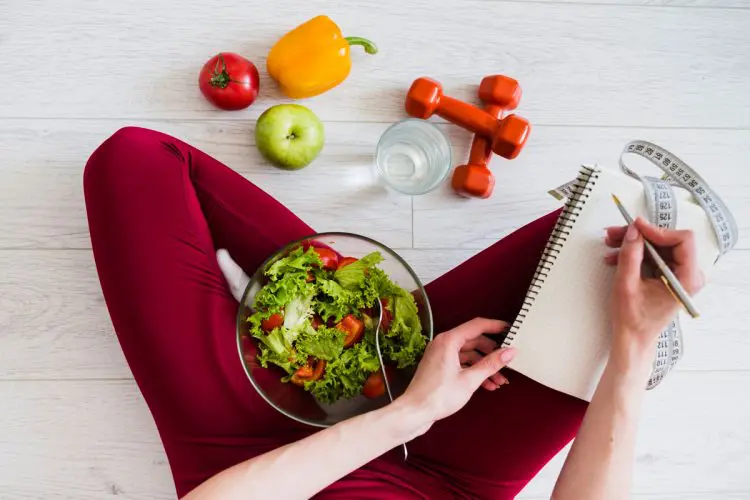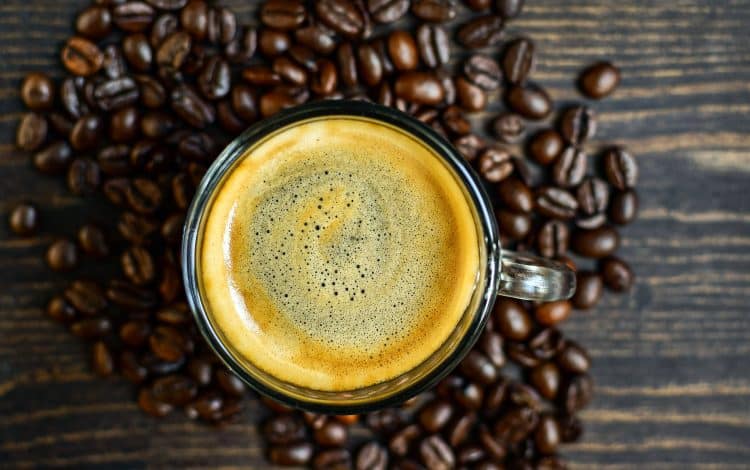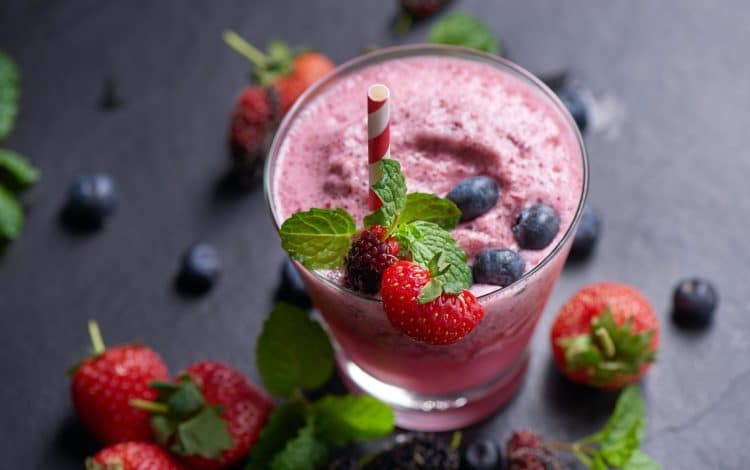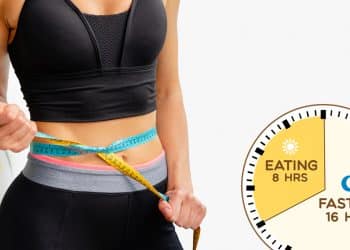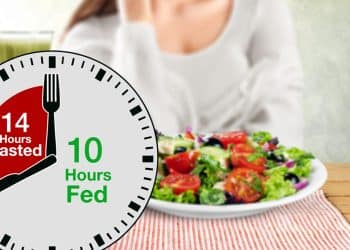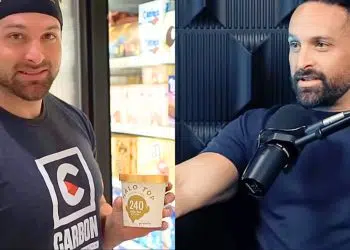Over the last few years, intermittent fasting (IF) has become a trend among young and old. Fitness enthusiasts have constant questions about what to eat, what not to eat, and how much to eat during intermittent fasting.
For those of you who do not know, the fasting window in intermittent fasting does not mean you cannot have anything during that duration. You can have calorie-free drinks, and some specific foods and beverages consumed in limited quantities are less likely to interfere with your fast. Of course, this depends on the style of fasting you follow.
This article delves deep into the question of how many calories you can have when intermittent fasting and related paraphernalia.
Key Takeaways
- Nutrition experts opine that your fast will not brake as long as you eat or drink anything containing fewer than 50 calories.
- Exceeding the 50-calorie limit will break your fast and you will lose all benefits associated with fasting.
- While anything that has calories will technically break your fast, experts say that as long as the carbohydrate intake per day is under 50 grams, you can stay in the state of ketosis.
- According to experts, you must only consume water during the fasting window of an intermittent fast to derive maximum autophagy benefits.
Intermittent Fasting: What is it?
Fasting is a dietary practice where a person voluntarily abstains from food and beverages containing calories for a set time. The practice of fasting is hundreds of years old, and different forms have been followed over the years, including fasting for religious reasons.
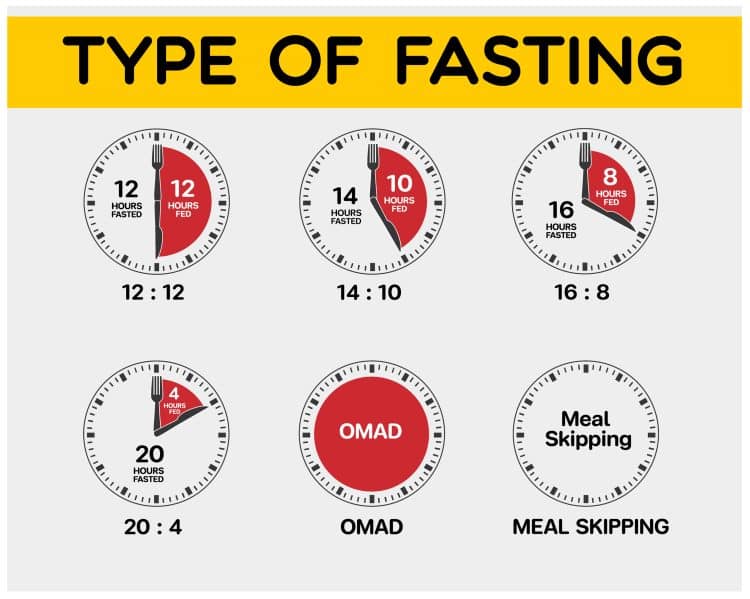
Intermittent fasting will typically rotate fasting periods with eating periods. The fasting period includes abstaining from food or consuming foods and beverages with minimal calories. Intermittent fasting focuses on when you eat as opposed to what you eat.
Level Up Your Fitness: Join our 💪 strong community in Fitness Volt Newsletter. Get daily inspiration, expert-backed workouts, nutrition tips, the latest in strength sports, and the support you need to reach your goals. Subscribe for free!
Intermittent fasting has been around for ages, but it recently gained popularity after people realized its health benefits. If we look at history, man has practiced fasting for religious and spiritual reasons and for survival since food was scarce at that time.
Intermitting fasting focuses on restricting calories to give your body a chance to rest and recover rather than use all its energy in digestion. Many fasting patterns advocate 12-16 hours a day of fasting, while other, more rigorous methods aim to fast for 24-48 hours or even 72 hours, either once or twice a week.
During fasting, your body will undergo metabolic changes, most notably the process of ketosis. When the carbs are unavailable to the body, it starts expending fat in its place to generate energy. Some people also combine intermittent fasting with a keto diet.
This fasting method can help with chronic disease prevention and weight loss. Let us now understand the benefits of intermittent fasting in detail to know if it is worth the buzz.
Benefits of Fasting
Fasting makes the insulin levels in your body go down. It promotes the process of autophagy, where the body will rid itself of harmful, unneeded, and damaged cells.
Fasting has a host of benefits attached to it. Besides giving your digestive system a break, it lets your body repair itself.
Here is a summary of fasting benefits:
- Reduces insulin resistance to control blood sugar levels [1]
- Prevents obesity [2]
- Reduces incidences of non-alcoholic fatty liver disease [3]
- Reduces risk of cancer [4]
- It acts as a therapy for neurological diseases [5]
How Many Calories Break A Fast?
Eating anything that has calories goes against the strict definition of fasting. However, an all-or-nothing eating plan is not sustainable long term. Nutrition experts opine that your fast will not brake as long as you eat or drink anything containing fewer than 50 calories. Exceeding the 50-calorie limit will break your fast and you will lose all benefits associated with fasting.
While anything that has calories will technically break your fast, experts say that as long as the carbohydrate intake per day is under 50 grams, you can stay in the state of ketosis. However, by definition, fasting still means going without food.
Even a few calories consumed during a fast can hamper the benefits of autophagy, the process of cell repair and cleansing. Autophagy is most effective when you are fasting with zero or low-calorie intake.
But what about the 3-5 calories you get in a cup of black coffee or tea? That is where the question gets tricky. According to experts, you must only consume water during the fasting window of an intermittent fast to derive maximum autophagy benefits.
However, if you find it difficult to have only water during your fast, here are some foods and drinks with minimal calories that will not disturb your fast unless you go over the 50-calorie mark.
Foods and Beverages That Can Be Consumed While Fasting
Technically, any amount of calories will break your fast. However, for people not deterred by this fact, here are some things you can have in moderation while intermittent fasting:
Water
It is the best beverage to have while on intermittent fasting. Stick to plain water. It contains no calories, so you can have as much as you want.
Tea and Coffee
Consume tea and coffee without adding milk, cream, or sugar. However, adding a small amount of fat or dairy can satiate you and control your hunger.
Level Up Your Fitness: Join our 💪 strong community in Fitness Volt Newsletter. Get daily inspiration, expert-backed workouts, nutrition tips, the latest in strength sports, and the support you need to reach your goals. Subscribe for free!
Apple Cider Vinegar Diluted
You can turn to diluted apple cider vinegar to control your hunger pangs during a fast. Drink 5-10ml (one to two teaspoons) of apple cider vinegar mixed with water, and you will stay hydrated and satiated for longer.
Healthy Fats
Some people drink coffee that contains MCT oil, butter, coconut oil, or ghee during intermittent fasting. While oil will break your fast, it will not stop the process of ketosis and is a handy thing to have in between meals.
Bone Broth
Bone broth contains many nutrients and will help replace lost electrolytes during fasting. Remember that fat and bone broth will technically break your fast but keep your body in the ketosis state. You may consume small amounts of the above foods and drinks during a fast; however, if you want to follow intermittent fasting by the book, consume only water during your fasting period.
Supplements That Break Your Fast
Here are the supplements you should avoid while fasting:
- Gummy multivitamins: They contain minuscule amounts of protein, sugar, and fat, which will technically break your fast.
- Branched-chain amino acids: BCAAs trigger a response to insulin that opposes autophagy. [6]
- Protein powders: They contain calories and trigger an insulin response, signaling to your brain that you are not fasting.
- Specific food ingredients: Supplements containing ingredients like pectin, maltodextrin, fruit juice, and cane sugar have calories and sugar that will break your fast.
Supplements That Will Not Break Your Fast
Give below are some supplements that do not break your fast:
- Multivitamins: Go for those brands that do not contain sugar or have any added fillers. It should include few to no calories.
- Algae oil or fish oil: Fish or algae oil are supplements that do not have calories or carbs when taken in a regular dose.
- Individual Micronutrients: It will include different supplements like vitamin D, vitamin B, complex vitamins, and potassium.
- Creatine: It is calorie-free and also does not trigger an insulin response.
- Pure Collagen: It may slightly impair autophagy but will not affect ketosis and fat burning during intermittent fasting.
- Prebiotics and Probiotics: They do not have digestible carbs or calories and can be consumed while intermittent fasting.
How to Break Your Fast
When you break your fast, you have to be careful to ease your body out of the fasting state. When you are almost at the end of your fasting period, you can introduce tiny portions of foods that get digested easily so that your digestive system is not overloaded.
If you break your fast with food high in fat, fiber, or sugar, it will be difficult for your body to handle the load and can lead to digestive issues like discomfort or bloating. After a fast, do not eat foods like cheeseburgers, cake, or colas. You may even have trouble with high-fiber nuts and seeds.
Compared to this, food rich in nutrients, containing a percentage of healthy fats and proteins, will allow you to break your fast gently.
Here are some foods you can have to ease out of your intermittent fasting schedule:
- Smoothies: Blended drinks are a gentle way of introducing nutrients into the body. These contain less fiber than veggies and fruits.
- Dried fruits: These are commonly used to break a fast. Dates are a concentrated source of essential nutrients. You can also have raisins and apricots.
- Soups: Go for soups with a lot of protein and easily digestible carbs like pasta, tofu, and lentils. Only have soups that have a large amount of fiber or cream.
- Vegetables: You can select starchy, soft-cooked vegetables when breaking your fast. The humble yet delicious potato is an example.
- Fermented Food: Try out kefir or unsweetened yogurt.
- Healthy Fats: Use healthy fat-rich foods like avocados and eggs to break your fast.
Once you can tolerate the gentler foods above, you can add other, more substantial foods like whole grains, fish, meat, poultry, nuts, and seeds.
Do Not Overeat During Your Eating Window
It’s easy to slip back into old habits and overeat during the eating periods of your fast. Though fasting does not emphasize what you eat, do not use it as an excuse to consume unhealthy food.
If you overeat junk food, the positive effects of intermittent fasting will be lost. To avoid this, eat minimally processed and whole foods to derive the best benefits from your fasting routine.
FAQs
Will 10 calories break intermittent fasting?
Technically, any amount of calories would break your fast. If you are following a strict schedule, avoid drinks and foods containing calories. If you are on a modified fasting plan, you can eat up to 25% of your average daily intake while fasting.
How many calories to eat while on 5:2 intermittent fasting?
The 5:2 fasting diet requires you to limit your calorie intake two days a week. On the fasting day, women should eat no more than 500 calories, while men should not eat more than 600 calories. For the remaining five days, you can follow your regular diet.
Can I fast for 10 hours instead of 12?
You will need to decide on your fasting schedule before starting the fast. Fasting for 12 hours instead of 10 will cause the body to convert more stored fat into energy, releasing more ketones into your bloodstream. The process of ketosis is likely to induce more weight loss.
Do you have to count calories while on 16:8 intermittent fasting?
You do not need to count calories on the 16:8 fasting plan. During the 16-hour fasting period, you should limit yourself to tea, coffee, or diet soda. After this, for the next eight hours, you can have anything you want without counting calories, but it is better to avoid junk food.
Learn more about fasting
- How Long Until Intermittent Fasting Works? A Realistic Timeline for Results
- When Does Your Body Start Burning Fat with Intermittent Fasting?
- 14/10 Intermittent Fasting: The Simple Hack for Better Health and Weight Loss
- The Ultimate Guide to Alternate-Day Fasting: Boost Metabolism, Lose Weight, & Feel Great
- Intermittent Fasting and Exercise: Should You Work Out on an Empty Stomach?
- 6 Surprising Facts About Meal Timing and Metabolism
- Forget Eating Before Workouts — Do Fasted Training for Increased Fat Oxidation
- Is Intermittent Fasting Safe for You? Here’s What the Experts Say
Wrapping Up
You should consume few to no calories during a fast. However, it might be hard for some people, especially beginners.
Per experts, you will receive all benefits of fasting as long as you stay below the 50-calorie mark. Additionally, if you limit your carb intake to 50 grams a day, your body will remain in ketosis, and you can reap all the rewards of intermittent fasting.
When you’re ready to break your fast, choose low-calorie foods that are easy to digest and don’t contain a lot of fiber, sugar, complex carbs, or fat. You should ease back into your normal eating routine after an extended fast.
References
- Antoni, Rona, et al. “Effects of Intermittent Fasting on Glucose and Lipid Metabolism | Proceedings of the Nutrition Society | Cambridge Core.” Cambridge Core, 16 Jan. 2017
- “Efficacy of Intermittent Fasting on Weight Loss and Related Metabolic Parameters in Adults With Overweight or Obesity – Full Text View – ClinicalTrials.gov.” Efficacy of Intermittent Fasting on Weight Loss and Related Metabolic Parameters in Adults With Overweight or Obesity – Full Text View – ClinicalTrials.gov, clinicaltrials.gov/ct2/show/NCT04795973. Accessed 18 Nov. 2022.
- “Effect of Intermittent Fasting on Non-Alcoholic Fatty Liver Disease: Systematic Review and Meta-Analysis – PubMed.” PubMed, 12 July 2021, pubmed.ncbi.nlm.nih.gov/34322514.
- R. Gill, C. I., and I. R. Rowland. “Diet and Cancer: Assessing the Risk | British Journal of Nutrition | Cambridge Core.” Cambridge Core, 9 Mar. 2007
- Phillips, Matthew C. L. “Fasting as a Therapy in Neurological Disease.” PubMed Central (PMC), 17 Oct. 2019
- “Distribution of Dietary Protein Intake in Daily Meals Influences Skeletal Muscle Hypertrophy via the Muscle Clock – PubMed.” PubMed, 6 July 2021, pubmed.ncbi.nlm.nih.gov/34233179.

